
POPULAR MECHANICS: When we first met, you mentioned you had been a fan of Popular Mechanics growing up. What drew you to it? TIM COOK: It answered the question "How?" a lot. And it explored things that I was terribly interested in, from cars to space travel. It got me interested in the 50-in-1 Tandy Science Fair Radio Shack kit. And I think it's so awesome that it has survived over 100 years, that the magazine could evolve and still be for hobbyists and tinkerers the computer business got started in the same way. The people who were originally interested in computers were hobbyists and tinkerers.
PM: So much of innovation comes from messing around. Tinkering. Apple is known as a place where ideas can come from anyone, anywhere. How do you create that culture-and sustain it? TC: They don't take any singular route, they can come from everywhere in the company. We believe in putting groups of people together focused on solving some problem for a user. You pick diverse teams that look at the problem through different lenses.
We debate about things that we do and do not do, because we know we can only do a few things well. You have to debate and say no to a lot of great ideas so that you can spend your time on the ones that are truly unbelievable.
PM: Can you think of an example of some functionality of one of Apple's products that when you first heard about it, you said, "That's cool!" TC: Oh, they happen all the time. I feel like that every day-like a kid in a candy store. We were just talking in the hallway about M2 and M1the history there goes back well over a decade. It goes back to the genesis of the M chips, or the A chips, from iPhone and really getting in and figuring out, how do you put a powerful chip in something that small and not get it to heat up and burn up?
This story is from the {{IssueName}} edition of {{MagazineName}}.
Start your 7-day Magzter GOLD free trial to access thousands of curated premium stories, and 9,000+ magazines and newspapers.
Already a subscriber ? Sign In
This story is from the {{IssueName}} edition of {{MagazineName}}.
Start your 7-day Magzter GOLD free trial to access thousands of curated premium stories, and 9,000+ magazines and newspapers.
Already a subscriber? Sign In
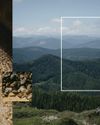
ONE OF THE 'GREATEST THREATS' TO THE PACIFIC NORTHWEST ISN'T WHAT YOU THINK.
EXPERTS ARE PREPARING THE REGION AGAINST THE THREAT OF DANGEROUS VOLCANIC MUDFLOWS, KNOWN AS LAHARS, WHICH COULD INUNDATE THE COMMUNITIES SURROUNDING MT. RAINIER IN AS LITTLE AS 30 MINUTES.
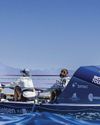
THE WORLD'S TOUGHEST ROW
They rowed 3,000 miles across the Atlantic, battling unpredictable weather, chaotic seas, and finicky equipment. But what they discovered gave them profound new insights into the power of the ocean.
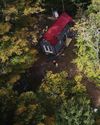
HOW TO DIY OFF-GRID SOLAR
SPEND THE TIME UP FRONT AND PLAN IT CAREFULLY TO AVOID DISAPPOINTMENT

Are We on the Verge of an ARMS RACE in SPACE?
RUMORS OF A RUSSIAN SPACE NUKE, ALONG WITH OTHER SATELLITE-TARGETING WEAPONS, HAVE MADE GEOPOLITICAL TENSIONS EXTEND INTO ORBIT.

Fresh Fingerprints on an Ancient Statue
A CLAY FIGURINE HAS SPENT MILLENNIA incomplete, waiting at the bottom of a lake for its long-dead craftsman to finish the Iron Age-era statuette.

Quantum Entanglement in Our Brains
IT HAS LONG BEEN ARGUED THAT THE human brain is similar to a computer. But in reality, that's selling the brain pretty short.

The Tools of Copernicus
WAY BACK IN 1508, WITH ONLY LIMited tools at his disposal, Nicolaus Copernicus developed a celestial model of a heliocentric planetary system, which he described in hist landmark work De revolutionibus orbium coelestium. It was a complete overhaul of our conception of the universe-one that, unfortunately, earned him the ire of the Catholic church for decades after his death-and forever changed the way we look at the stars.
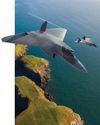
Building a Sixth-Generation Bomber Raptor
THE GLOBAL COMBAT AIR Programme (GCAP)-a project by the U.K., Italy, and Japan to develop a sixth-generation stealth fighter-has been busy at the drawing board reshaping its vision of the future of air warfare. And judging by the new concept model unveiled at this year's Farnborough air show, that future has big triangular wings.
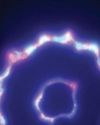
The Electroweak Force of the Early Universe
TODAY, THE UNIVERSE AS WE KNOW IT IS governed by four fundamental forces: the strong nuclear force, the weak nuclear force, electromagnetism, and gravity.
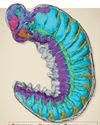
This Ancient Fossil With a Brain and Guts
WE KNOW WHAT FOSSILS LOOK like. For example, typical dinosaur fossils are bones turned to stone and preserved from the passage of time, located, if we're particularly lucky, in large collections that can be reassembled to represent the beast they used to prop up in their entirety.